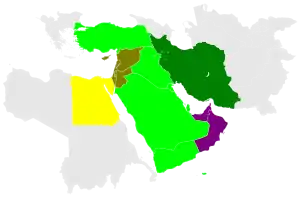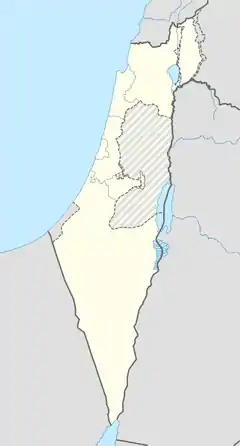Israel Standard Time
Israel Standard Time (IST) (Hebrew: שעון ישראל Sh'on Yisra'el, lit. "Clock of Israel") is the standard time zone in Israel. It is two hours ahead of UTC (UTC+02:00).

Light colors indicate where standard time is observed all year; dark colors indicate where daylight saving time is observed.

| yellow | Israel Standard Time (UTC+2) Israel Summer Time (UTC+3) |
Overview
History
At the beginning of the British Mandate, the time zone of the mandate area (today's Israel and Jordan), was set to Cairo's time zone (the same as Athens), which is two hours later than Greenwich Mean Time. The unique "Israel Standard Time" came into effect with the founding of the State of Israel in 1948, which gave Israel the authority in determining its own time, specifically to enact daylight saving time.
Differences between other countries
The difference from UTC is the same as Eastern European Time (UTC+02:00), during most of the year. Because Israel switches to summer time on Friday, rather than Sunday as most other countries do, the change of time in spring occurs either 2 days before or 5 days after the switch to summer time in Europe. The switch on Friday is due to having the Jewish Sabbath as the common rest day of the week. Prior to 2013, Israeli daylight saving time period ended earlier in autumn, and the Israeli time was identical to Central European Summer Time for between 2 and 7 weeks during these months.
Israel shares the UTC+02:00 time offset with all of its neighbouring countries: Egypt, Jordan, Lebanon and Syria.
Daylight saving time
Israel observes daylight saving time, locally called Israel Summer Time (Hebrew: שעון קיץ She'on Kayits, sometimes abbreviated in English as IDT).
Since July 2013, IDT begins on the Friday before the last Sunday of March, and ends on the last Sunday of October.[1]